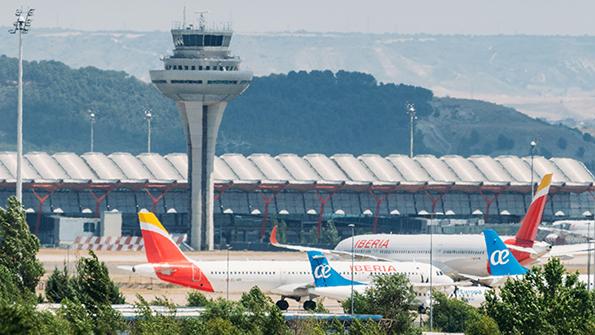
Two years after it agreed to buy Air Europa, in a move that was designed to strengthen its Madrid hub and South America network, International Airlines Group is still in limbo—and as more time passes, it looks increasingly unlikely the deal will come to fruition.
International Airlines Group (IAG), the parent company of Aer Lingus, British Airways, Iberia, Level and Vueling, announced in November 2019 that it had agreed to buy Air Europa for €1 billion ($1.1 billion) from Spanish tourism group Globalia.
- Commission investigation into planned deal has a January deadline
- Group has put forward a “remedy package” to help the deal win approval
- IAG’s CEO is “less optimistic” about the deal than he was before
As a result of the COVID-19 pandemic, IAG later managed to get that price cut in half to €500 million and defer payment until six years after completion of the deal. Good news for IAG. However, the deal is far from done: The two sides are left with a big regulatory hurdle to clear, in the form of a European Commission investigation opened earlier this year into whether the tie-up would harm competition on Spanish domestic routes and routes to and from Spain.
The provisional legal deadline for that investigation to reach a decision is Jan. 4, 2022. The Commission is declining to comment on the progress of the ongoing investigation.
As IAG presented its third quarter results on Nov. 5, CEO Luis Gallego—for whom, as a former Iberia CEO, the project will have particular resonance-—sounded a downbeat note, admitting he was “less optimistic than I was before” about the deal.
Gallego says the airline group is “in a conversation with three parties, the Spanish government, Globalia, the owner of Air Europa and also the competition authorities” after it submitted a remedy package to the Commission.
The Commission said, when it opened the investigation, that it would “carefully assess whether the proposed transaction would negatively affect competition on domestic, short-haul and long-haul routes to and from Spain, possibly leading to higher prices and reduced quality for travelers.”
Whether the remedies put forward by IAG to allay those concerns will be enough to win Commission approval remains to be seen. But some industry observers see a more fundamental problem with the deal: its strategic logic.
Altair Advisory Managing Director Patrick Edmond says COVID-19 has called that logic into question. “I think the strategic rationale for the deal has greatly diminished compared to where it was when they originally contemplated it,” he says. “Once upon a time, the opportunity was relatively clear: to consolidate the Spanish market and to prevent any ambitious competitor muscling in.”
Air Europa’s South American network will, if the deal goes through, add some new destinations to Iberia’s existing portfolio, but COVID-19 has dramatically changed the backdrop.
“Nowadays it’s unclear that long-haul, other than to the U.S., is going to come back in force anytime soon. It’s unclear that anyone else has the remaining piggy bank contents to justify a speculative punt on the Spanish market, and above all it’s unclear that Air Europa brings anything particularly valuable to the party,” Edmonds says.
Air Europa does have 20 Boeing 737 MAX 8s on order, dating from a 2016 deal with Boeing, and some of a 14-aircraft 787-9 order from 2015 still to arrive in its fleet. But these slots, while valuable, are not game-changing for the IAG group.
“Even if the merger happens, I don’t see that Air Europa is bringing much to the party or that much of Air Europa will survive,” Edmond adds.
Gallego’s comments could be a prelude to further negotiations, in particular if the Commission calls for more concessions. If IAG had simply wanted to walk away from the deal, the group would have done so by now, Edmond says. “Gallego is signaling that IAG is getting close to walking away in the hope that concentrates minds.”
As the end of the European Commission investigation nears, along with the end of Globalia’s financial year at the end of December, the talks could be approaching a critical point: Both sides simply want to know where they stand at, regardless of whether the deal is on or off.
For Gallego, the logic is still clear, in particular for the group and for the Madrid hub, but the deal is not indispensable. “We always said that if we can find a place that is good for all of us, we will do the deal,” he says. “And if not, we don’t do the deal, as we have done in other occasions when we have deals that we consider didn’t make sense for us.”

